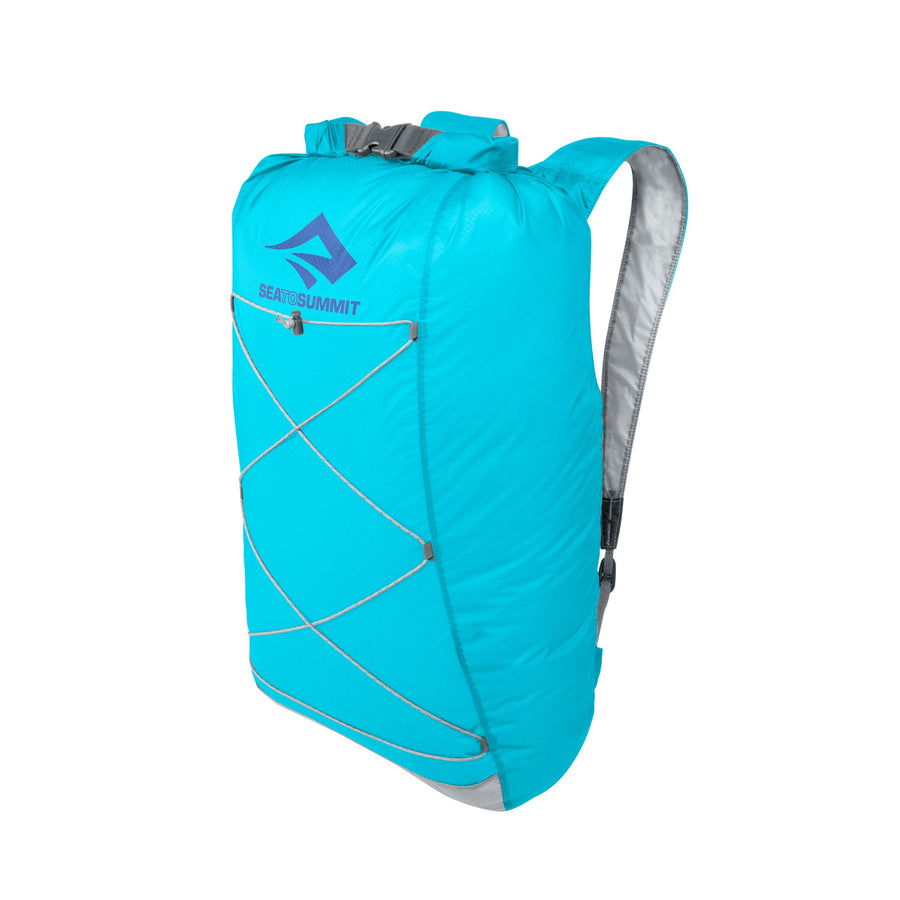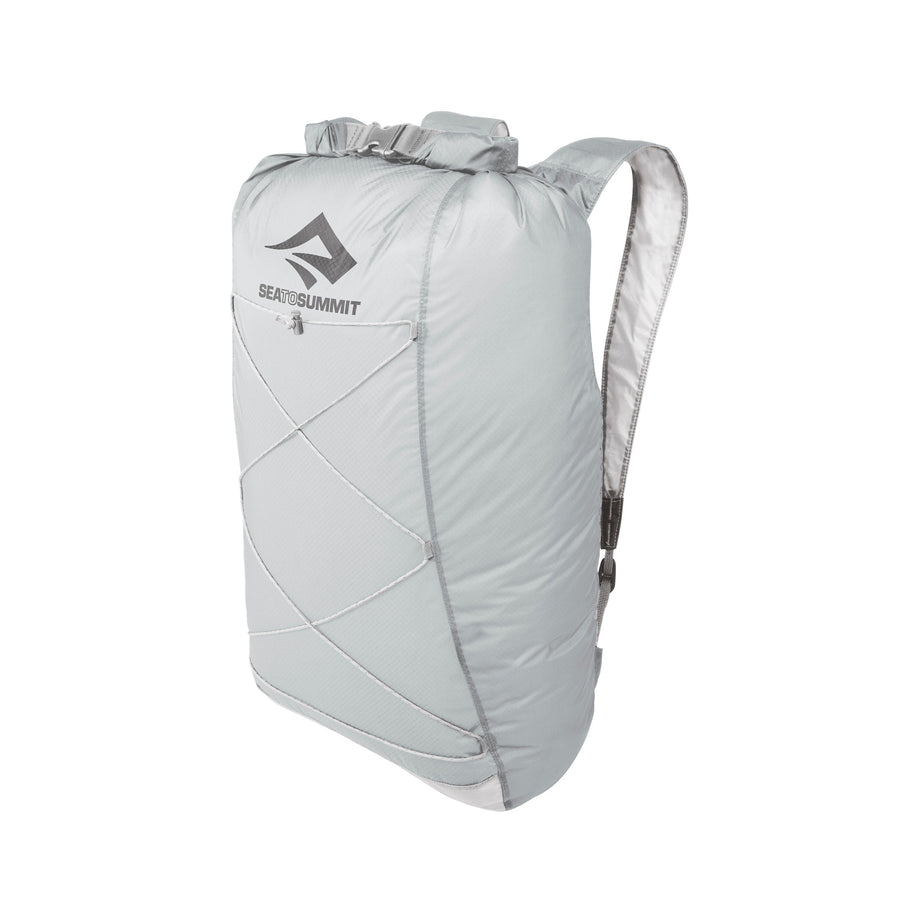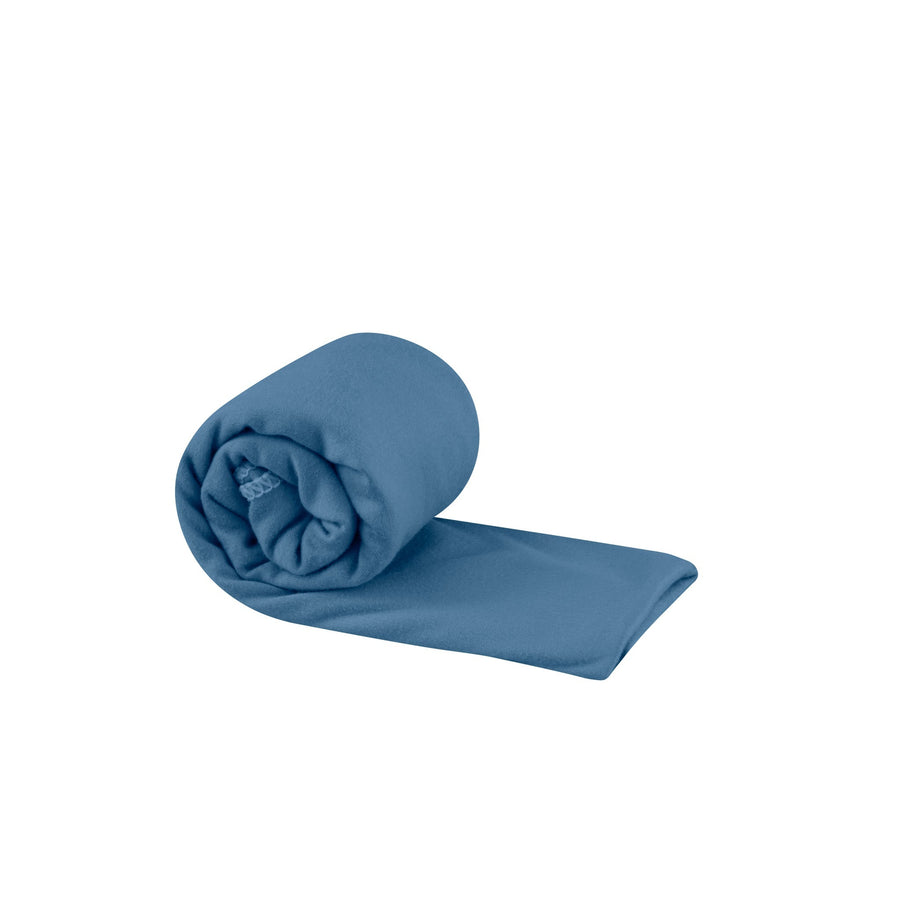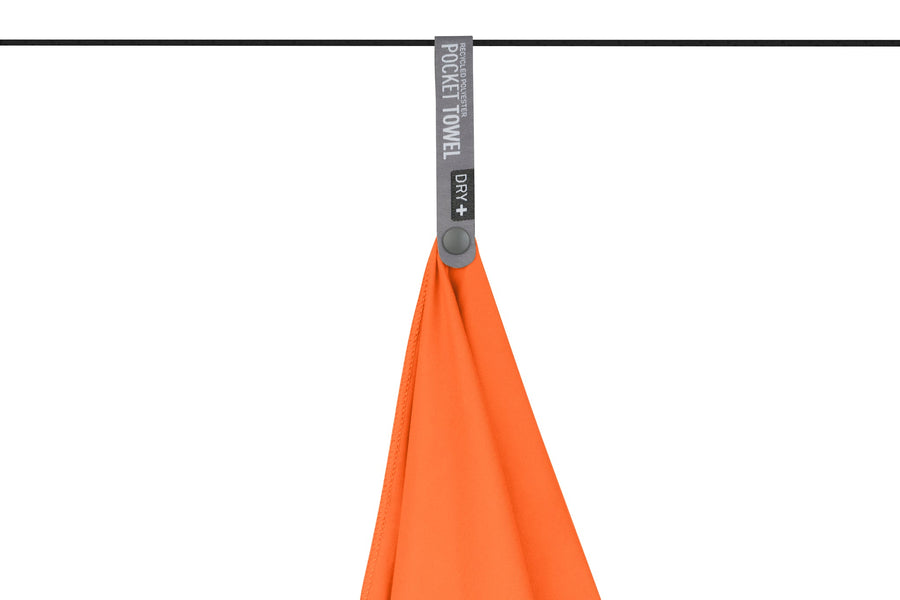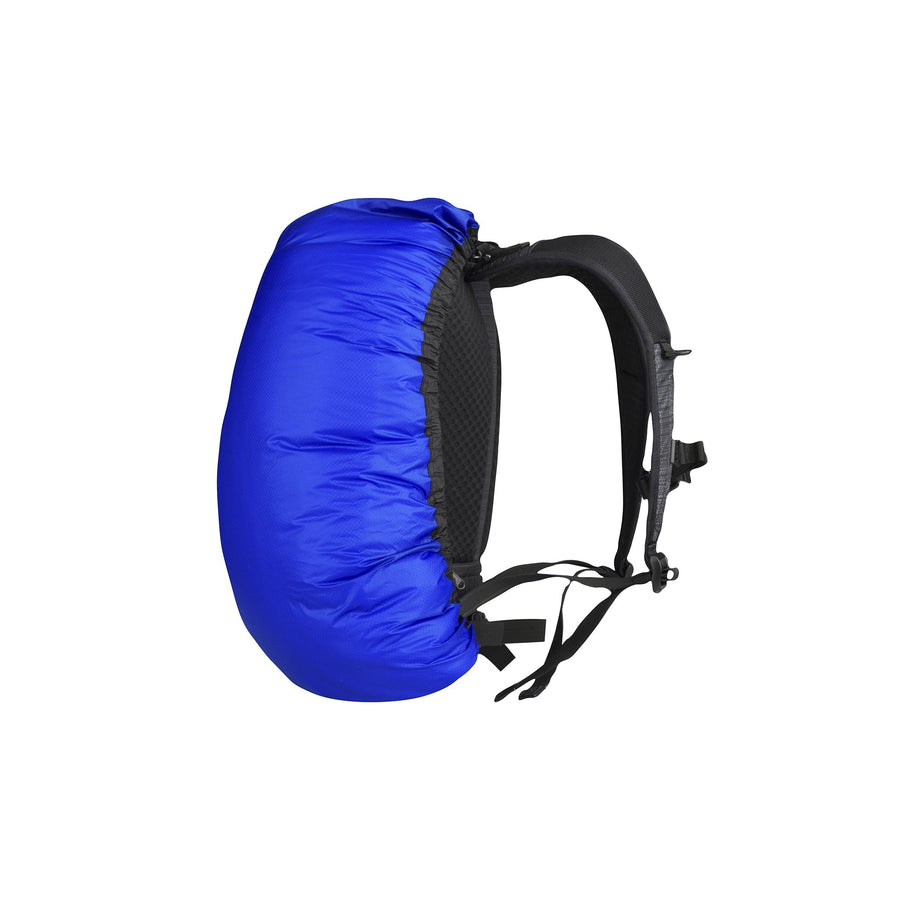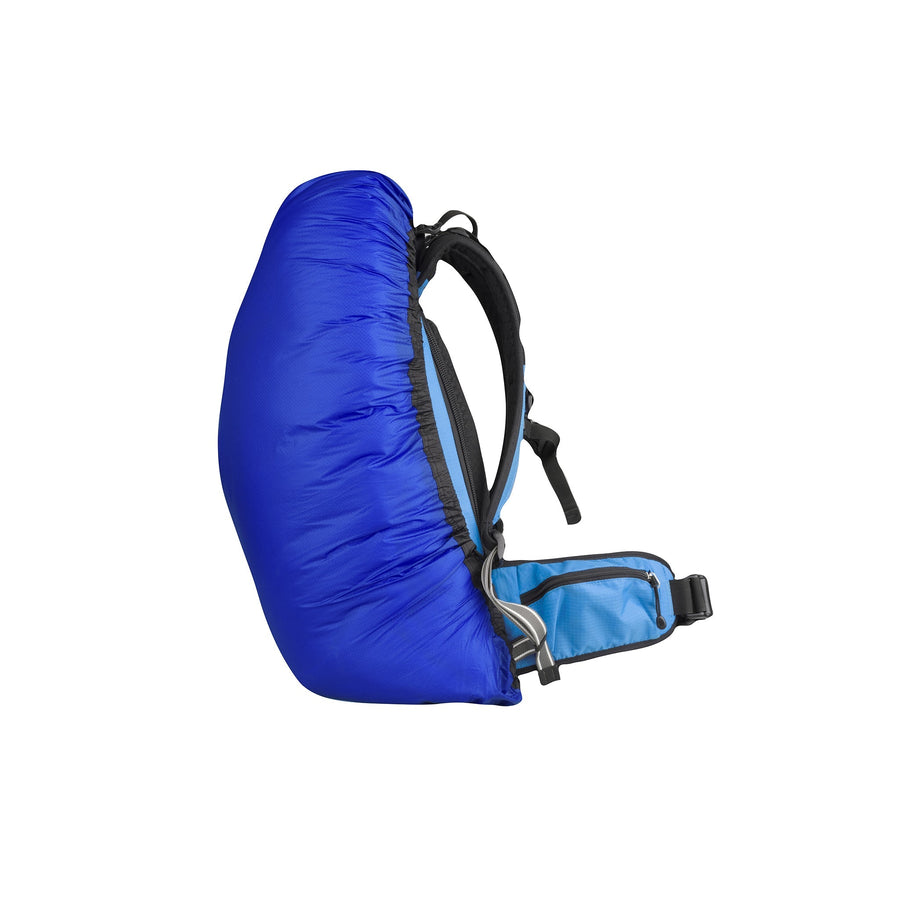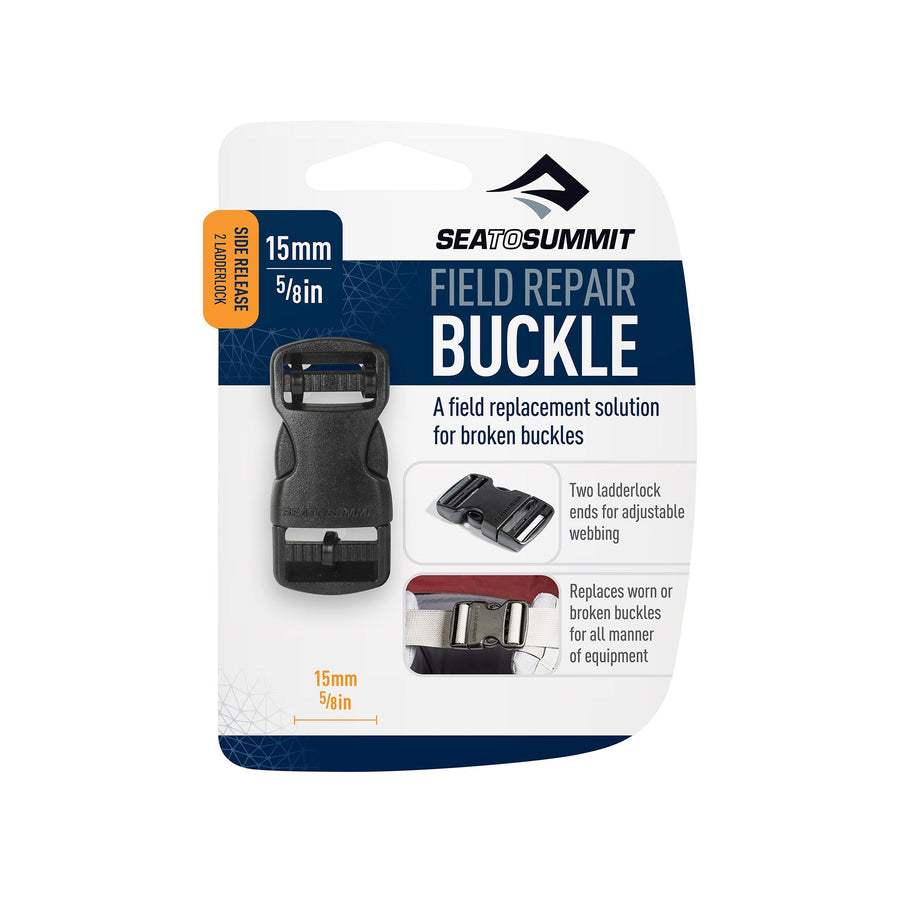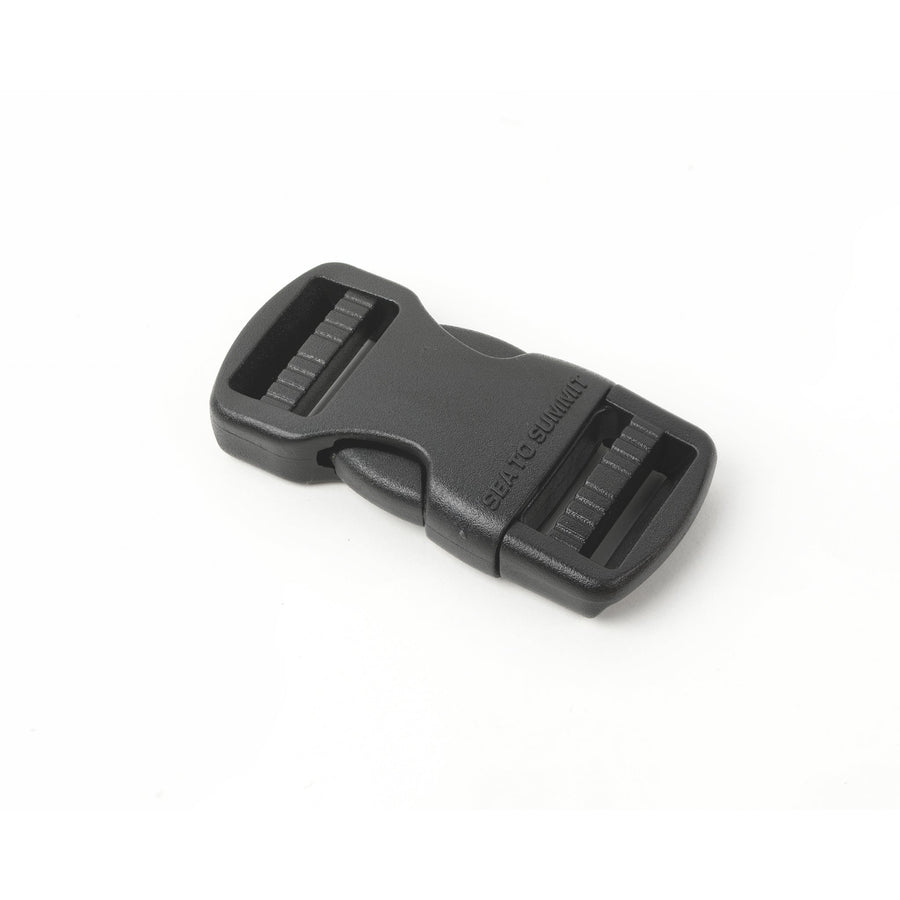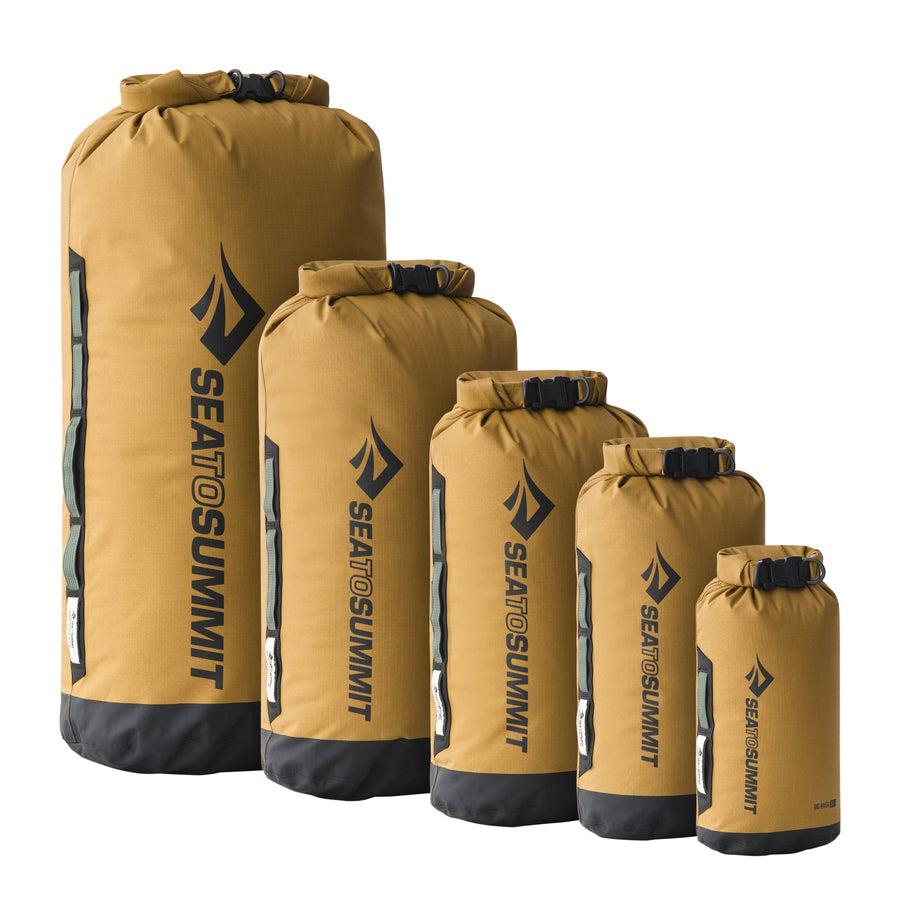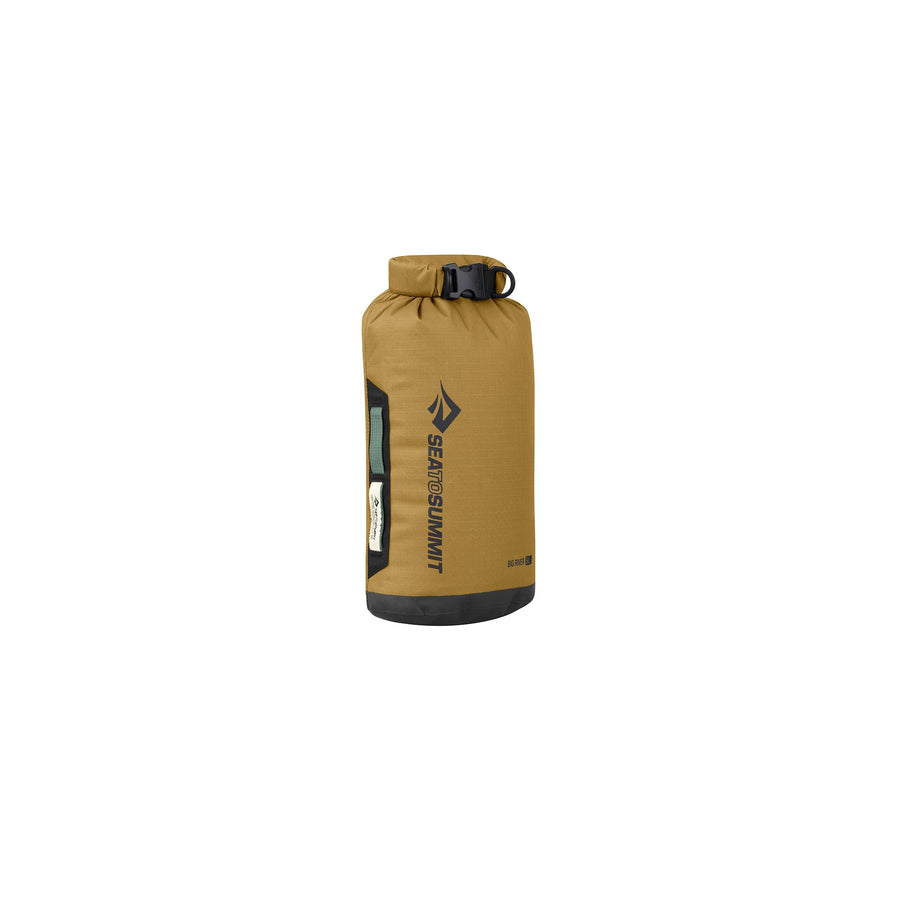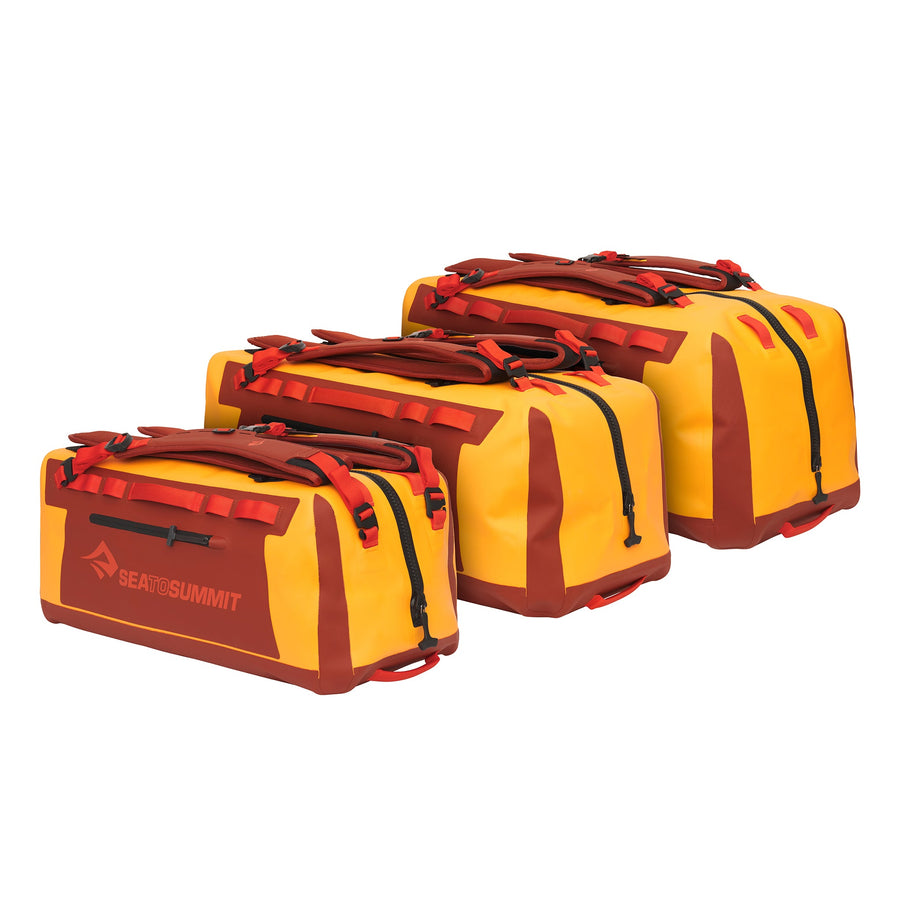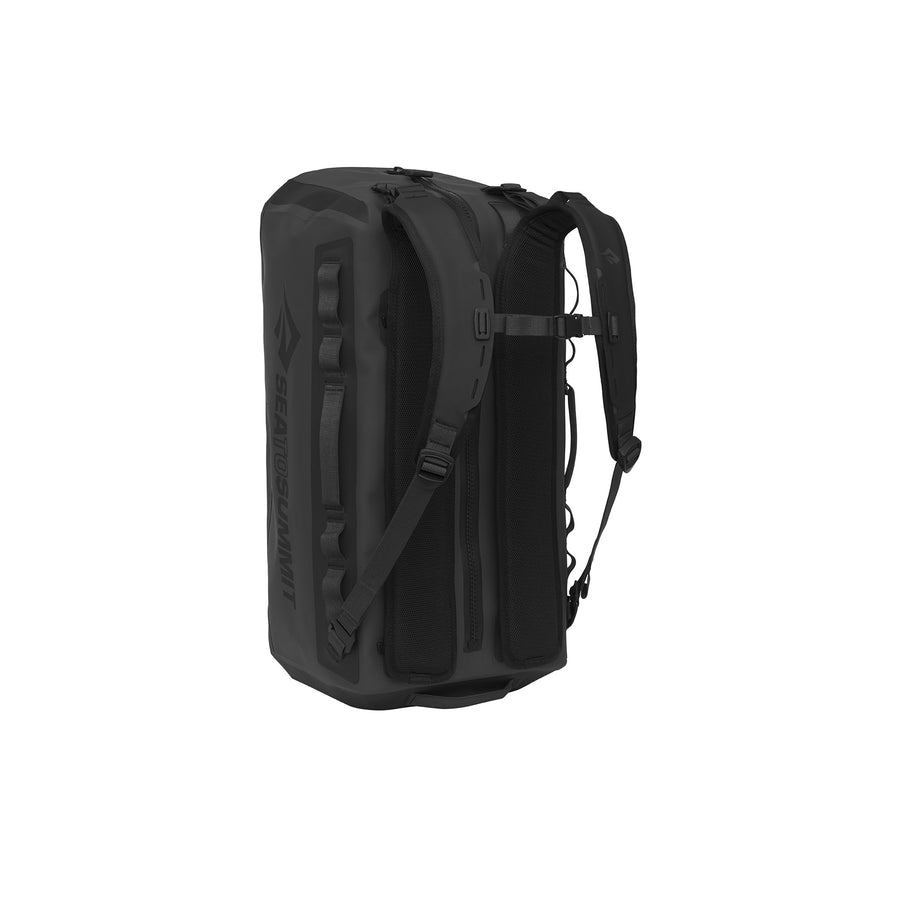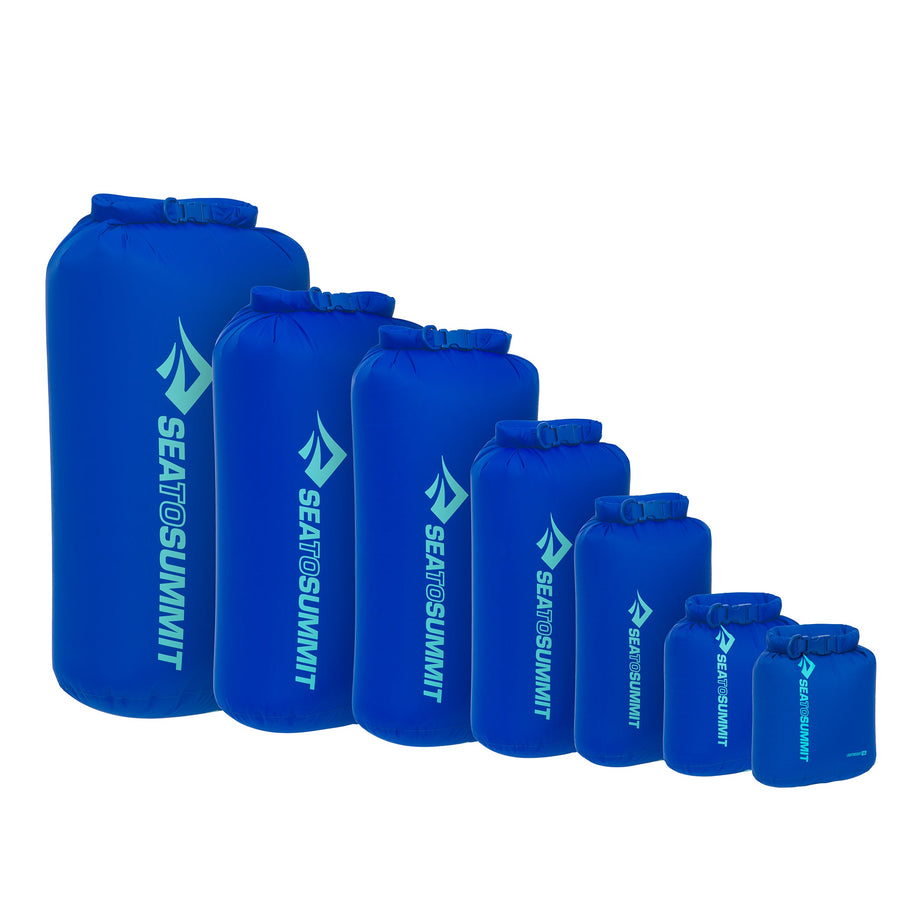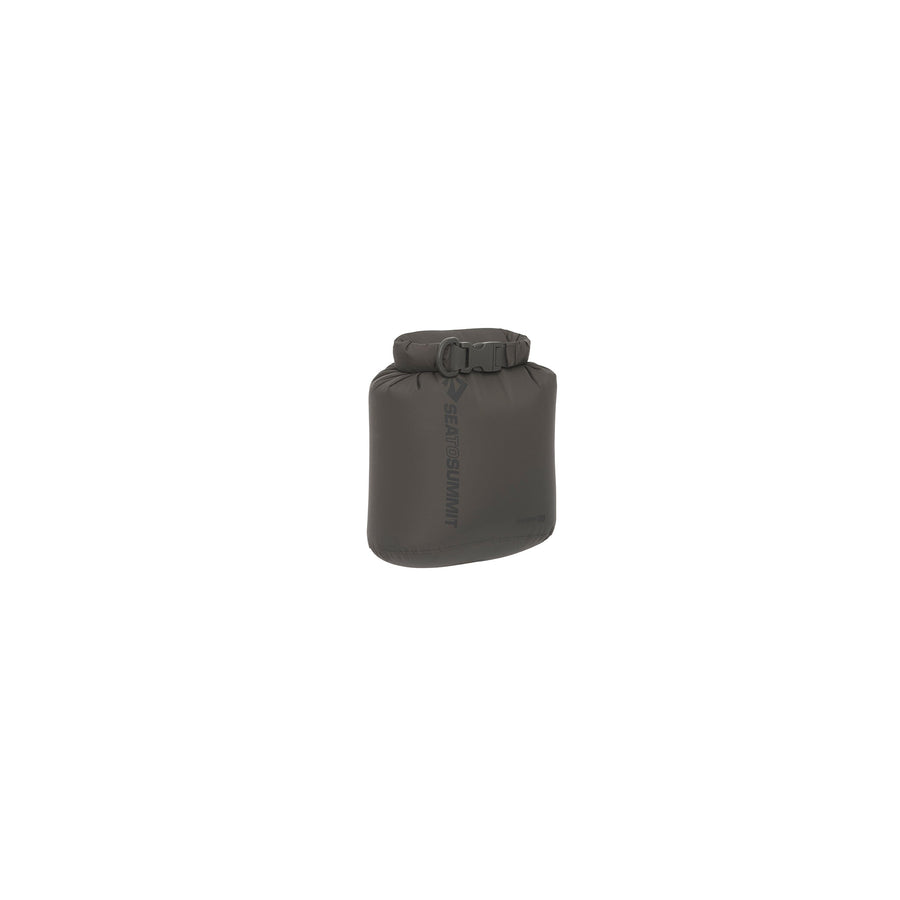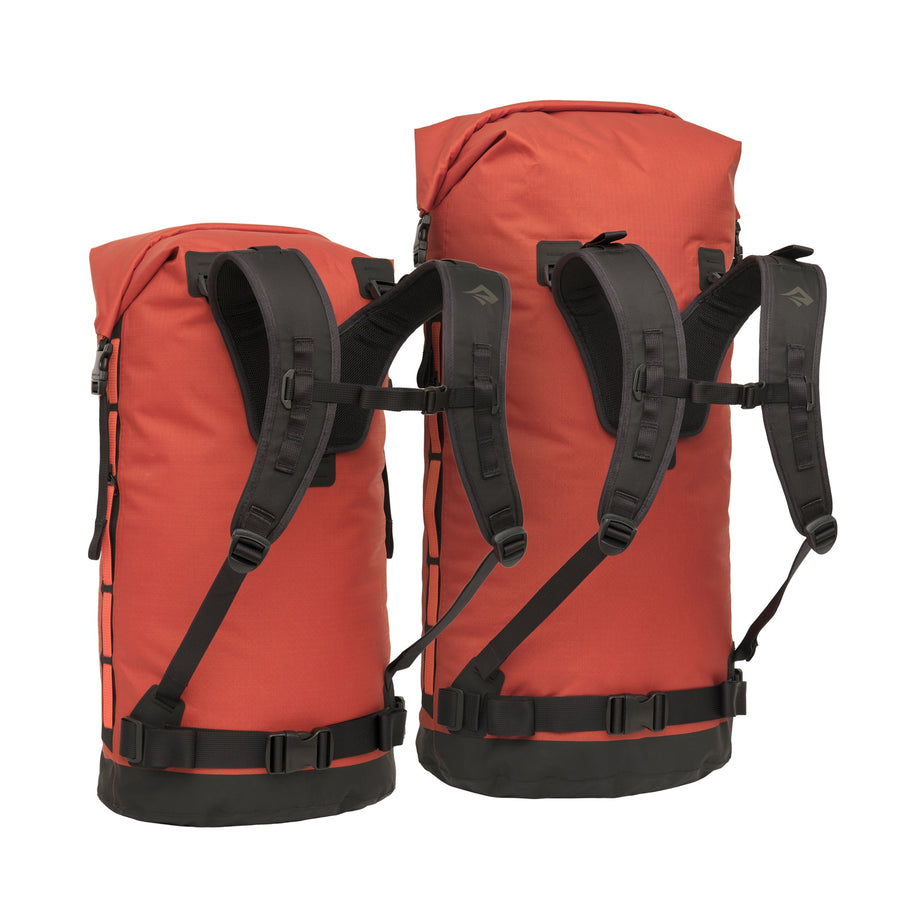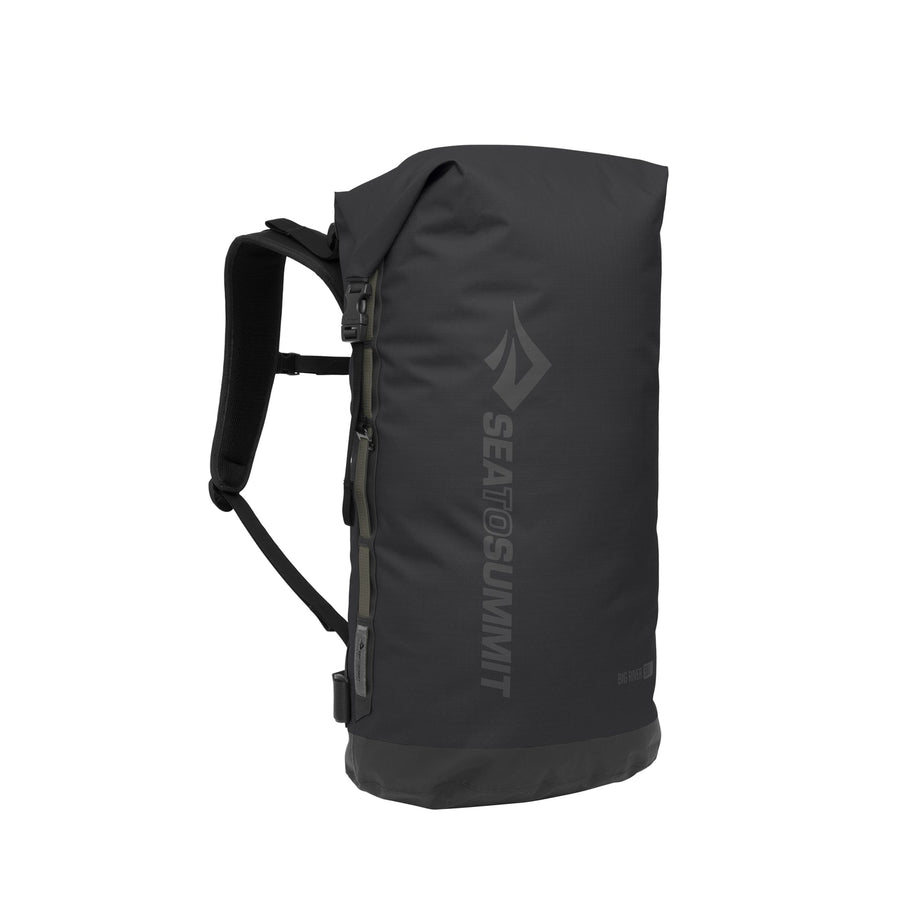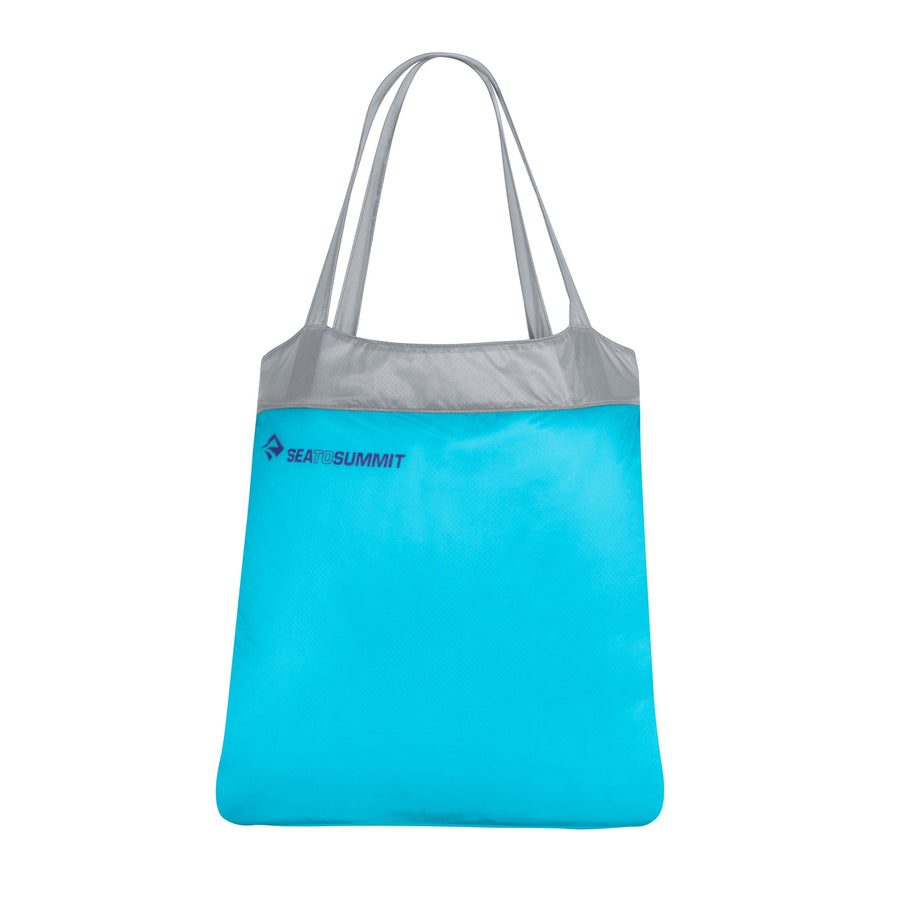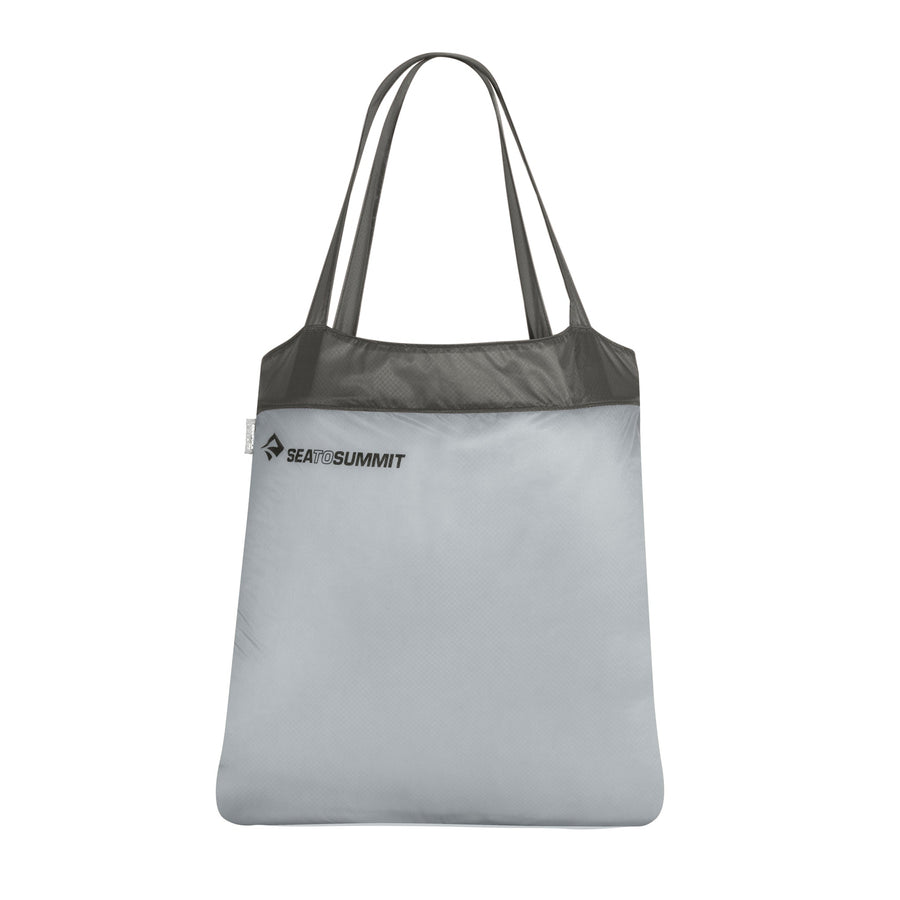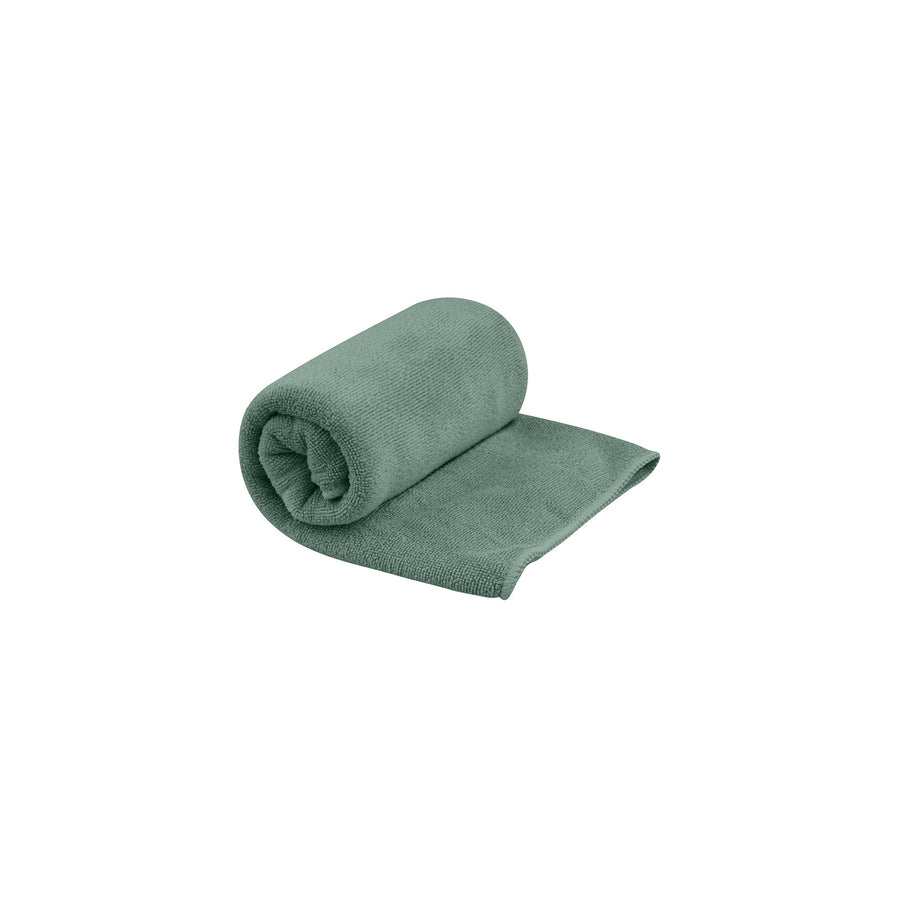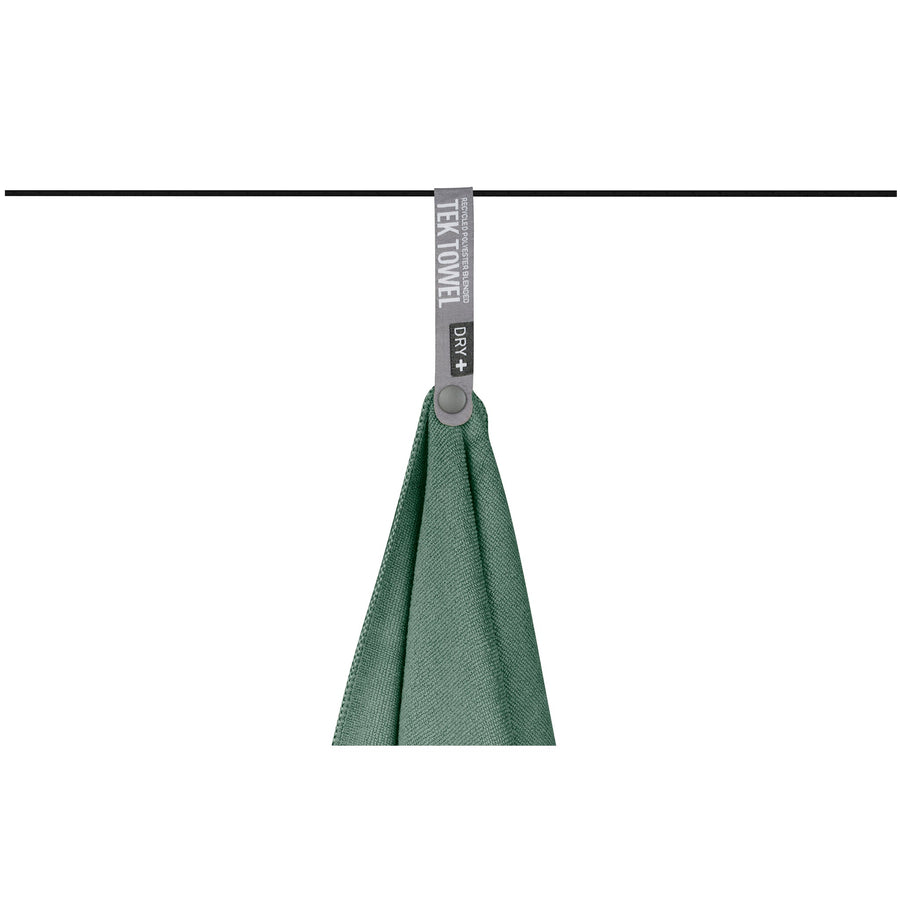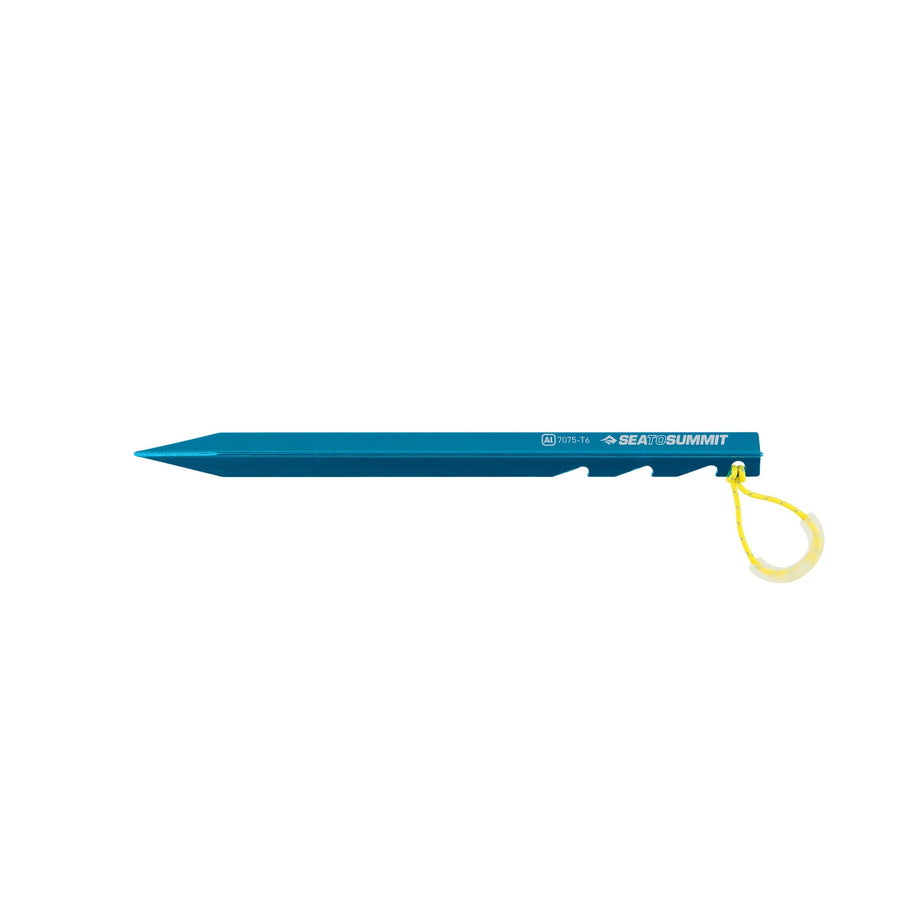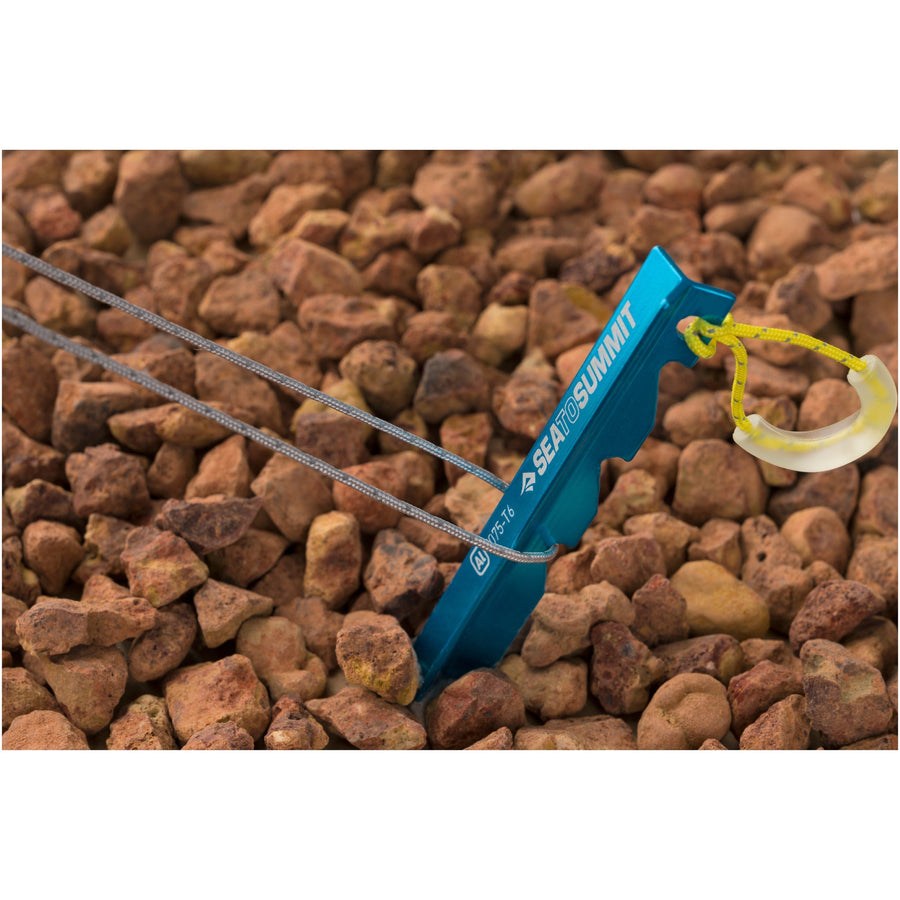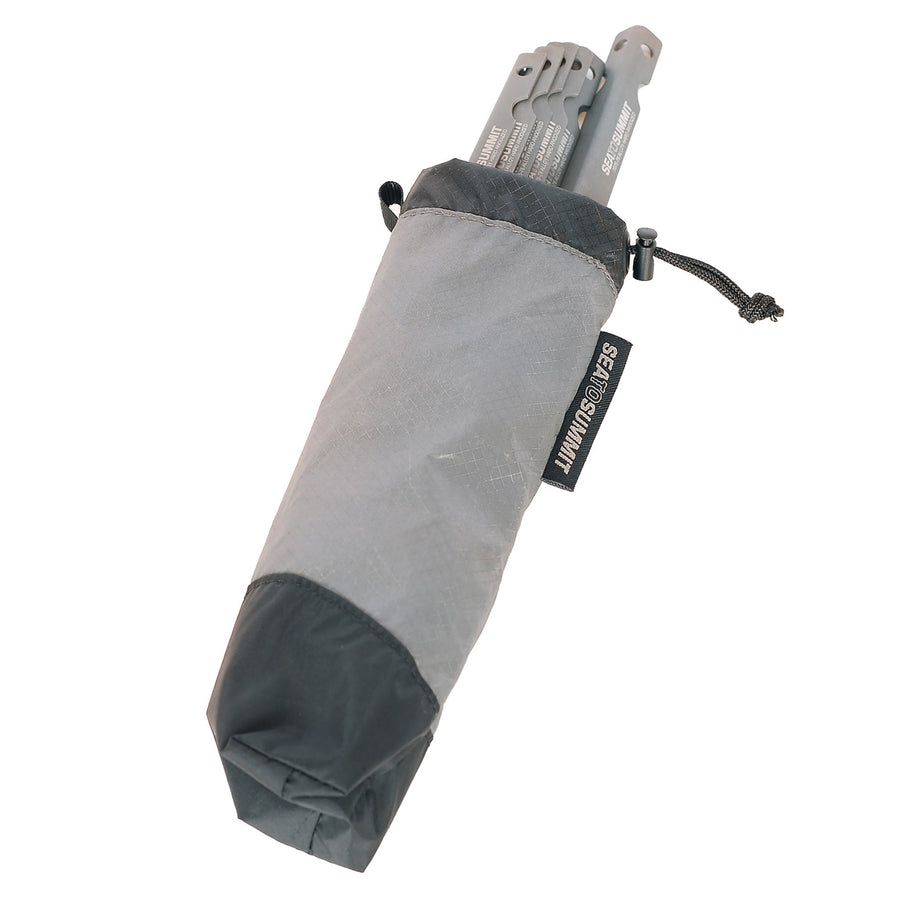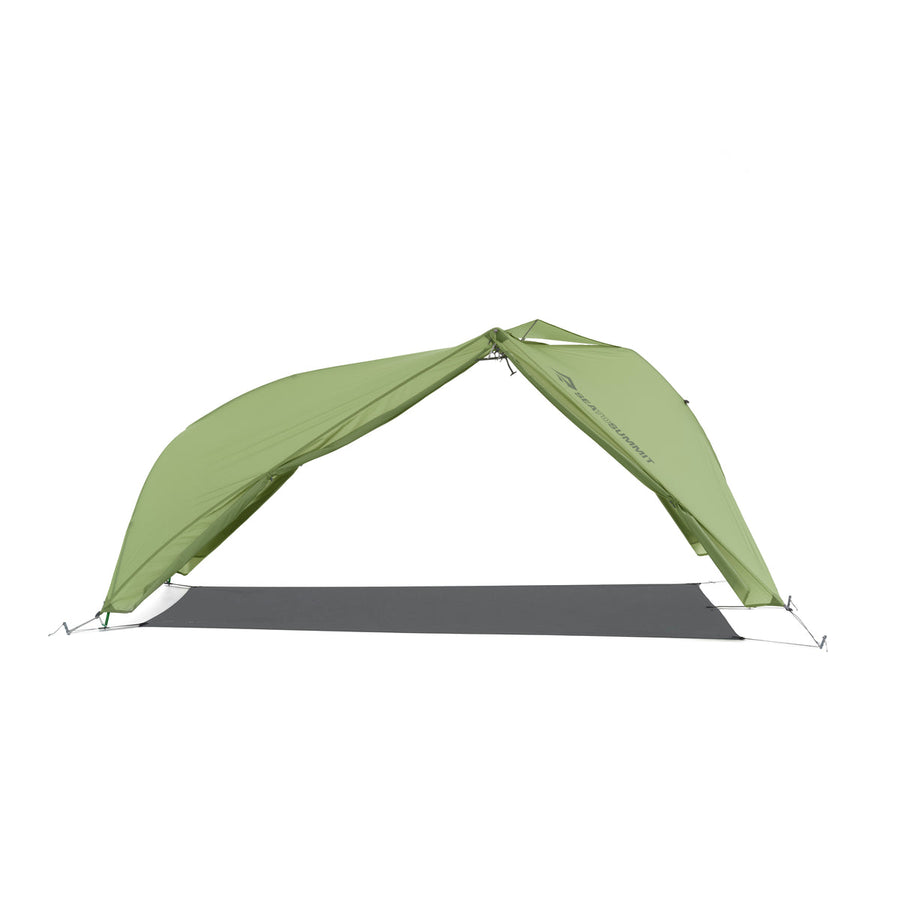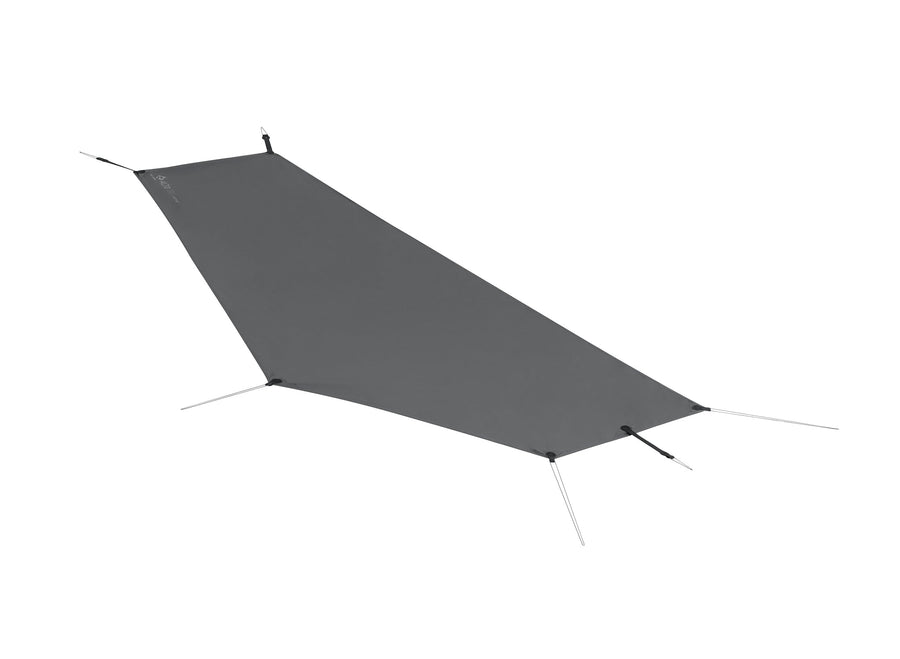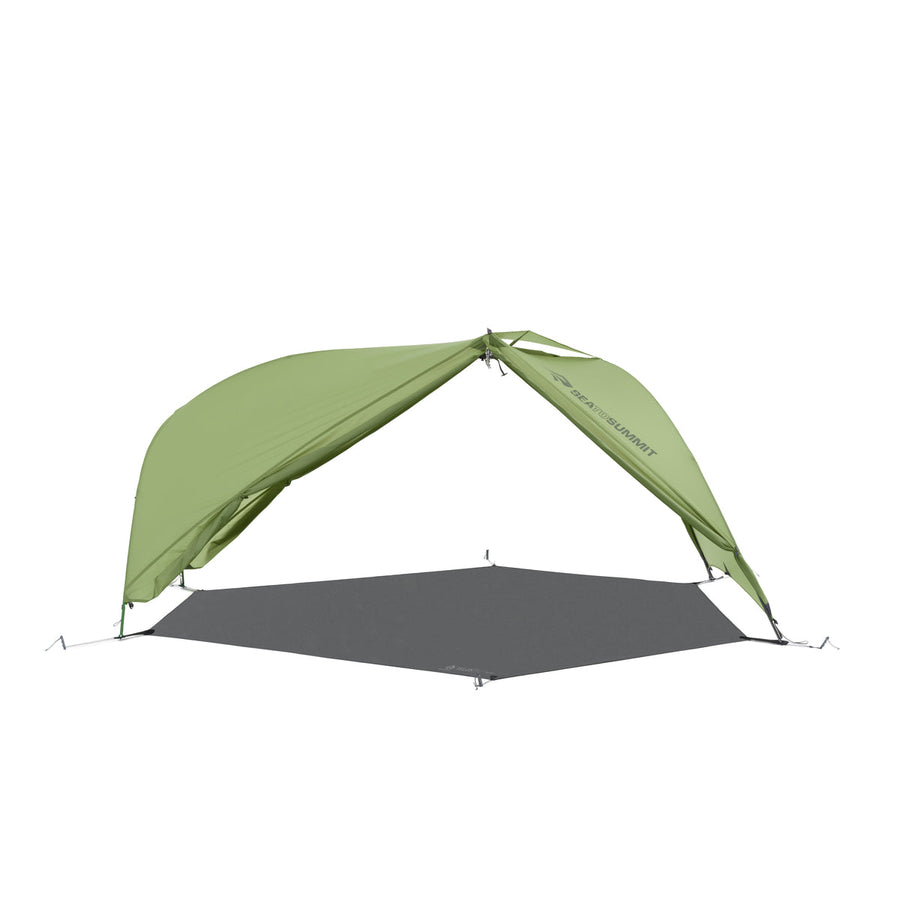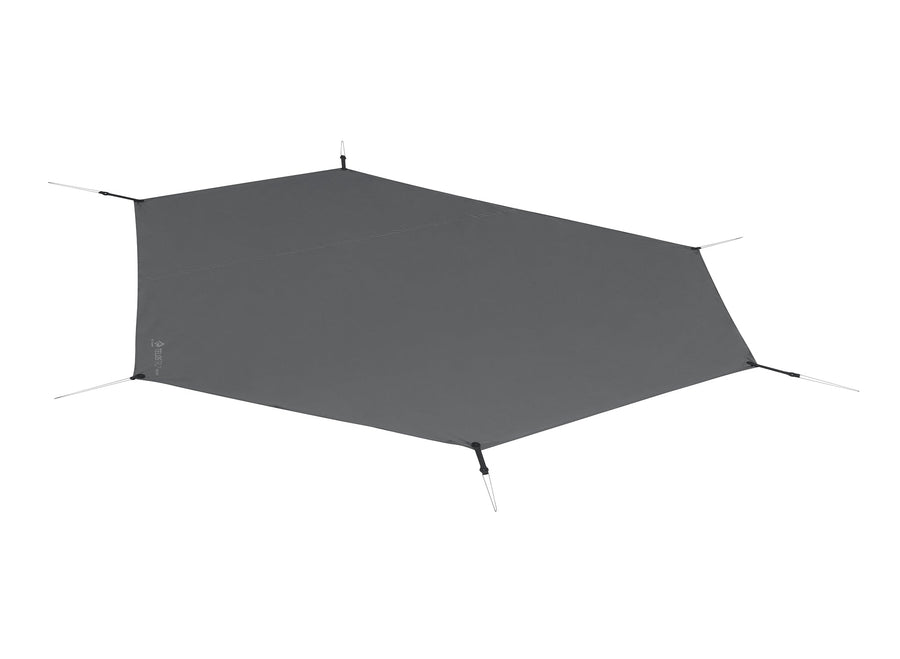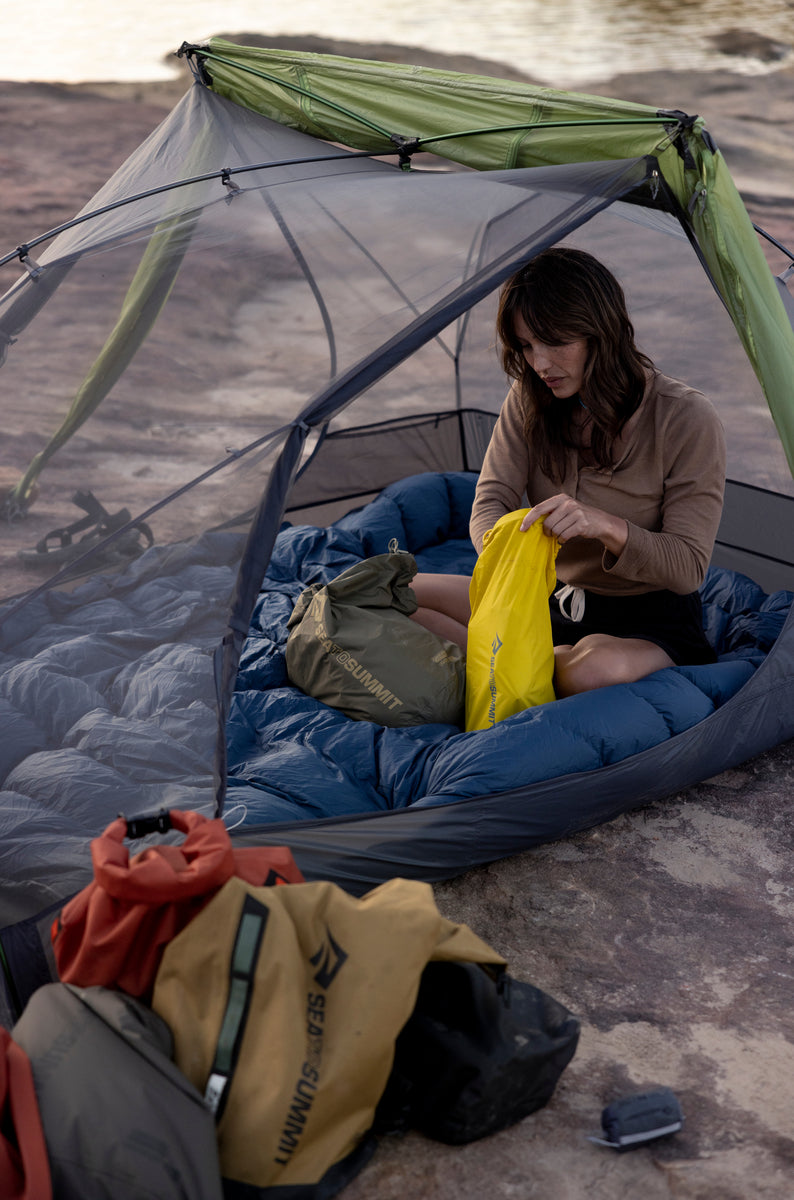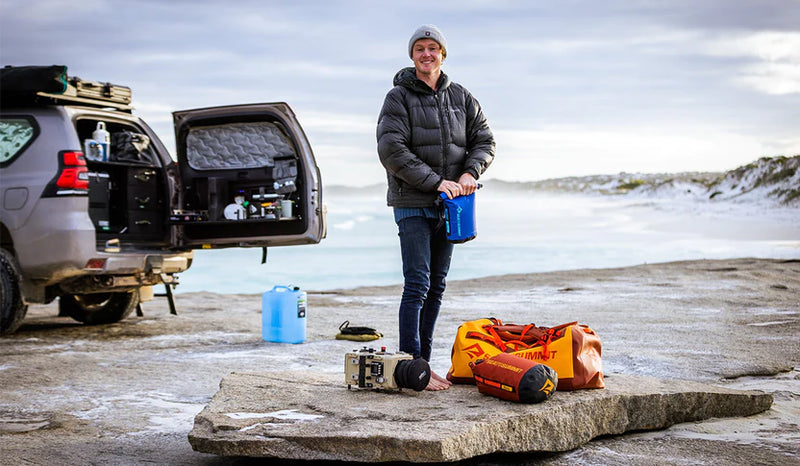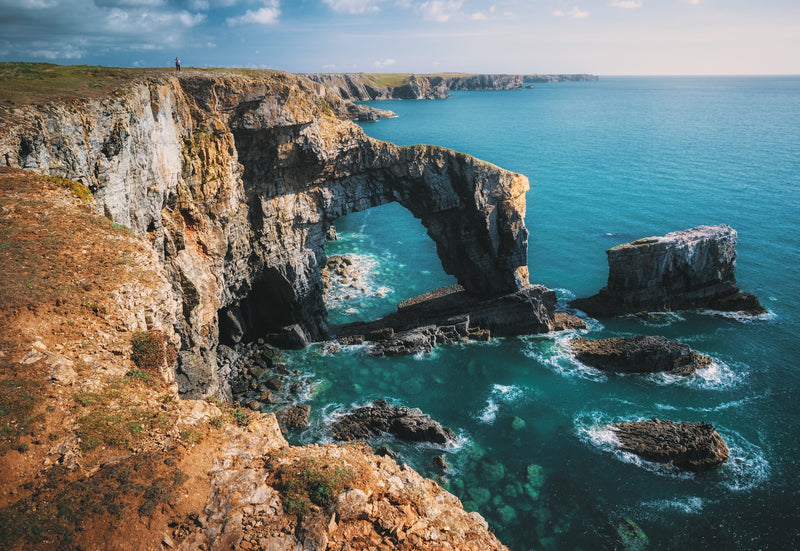Running 655kms to save an ancient rainforest
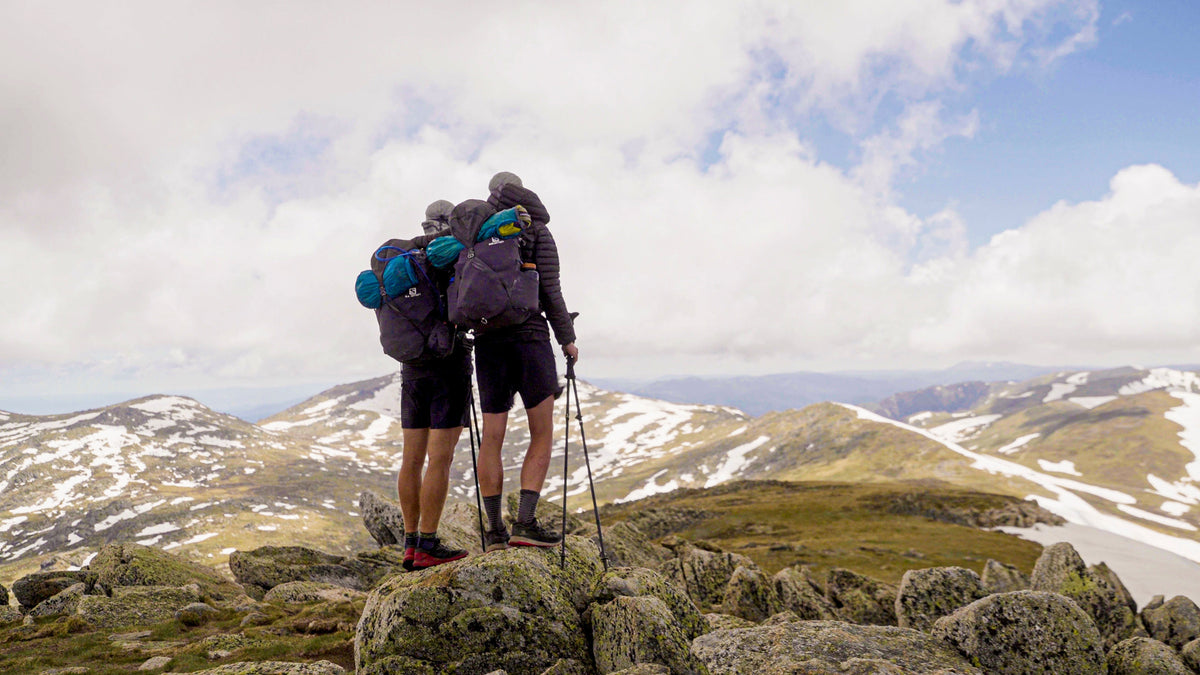
The 655km Australian Alps Walking Track (AAWT) is made for mountain lovers. Traversing the Great Dividing Range from (almost) Melbourne to Canberra, it forces travellers to overcome the extreme heights - and depths - of the Australian Alps. And aside from the thousand-year-old routes used by the Indigenous Peoples, the AAWT is the oldest established long-distance track in the country, and certainly the hardest.
Which begs the question, who would choose to run the AAWT, and why?
Twenty-something buddies, Matt Gore and Giles Penfold are part of that rare breed of adventurers who admit they’ve always dreamed of running the track, an idea that started with an innocent conversation back in February 2021.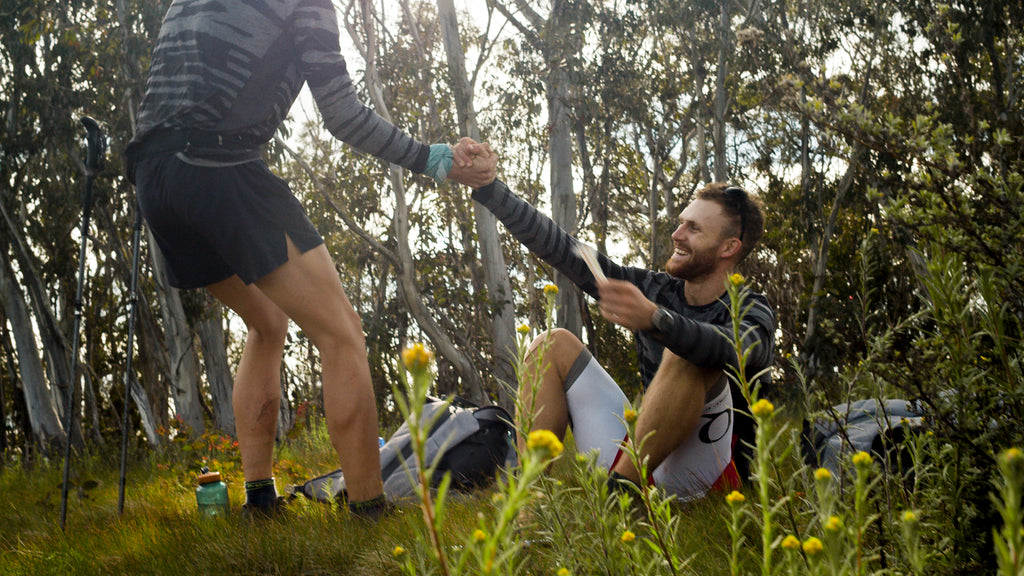 Passionate about the importance of preserving and spending time in Australian wilderness areas, the duo decided to embark on the challenge to raise funds for the Bob Brown Foundation. Specifically, to help protect takayna / the Tarkine, a critically endangered old-growth rainforest in Tasmania - a landscape of unprecedented value and beauty, but one which could be destroyed forever within just a generation.
Passionate about the importance of preserving and spending time in Australian wilderness areas, the duo decided to embark on the challenge to raise funds for the Bob Brown Foundation. Specifically, to help protect takayna / the Tarkine, a critically endangered old-growth rainforest in Tasmania - a landscape of unprecedented value and beauty, but one which could be destroyed forever within just a generation.
So, fast forward 10 months, throw in countless hours of planning and logistics, sprinkle in a bucket load of luck, and project 655fortakayna was born, alongside the procuring of a film crew that was persuaded to document the journey.
And so, on 21 November 2021, two self-described ‘overly-eager young guys’ were standing at a start line in the small Victorian town of Walhalla, with a film director yelling: ‘the cameras are rolling!’ Cue the beginning of one of the greatest challenges and adventures of Matt and Giles’s young lives.
Over the next 16 days and six hours, the pair battled the elements while running up and over mountains and through thick scrub regrowth, where the path had often completely disappeared and navigation was nigh on impossible.  Averaging a little over 40km per day, but with some days where 60kms was possible due to more favourable conditions, the pair also typically covered 2000-2500m elevation, both up and down.
Averaging a little over 40km per day, but with some days where 60kms was possible due to more favourable conditions, the pair also typically covered 2000-2500m elevation, both up and down.
Giles admits that the adventure included lots of steep climbing and sore calves, but that primary sponsor, Sea to Summit, provided the pair with some great gear for the trip.
‘Going as lightweight as possible was a huge priority for us, so being able to use Sea to Summit’s Spark Ultralightweight Sleeping Bags as well as Ether Light XT Insulated Sleeping Mats fit the bill perfectly and, in all honesty, exceeded our expectations,’ he said.
‘After a 12-14 hour day on our feet, being able to lie down on that sleeping mat was a delight. We’ve both slept on thin uncomfortable mats before, but this one was a game-changer. Lights out in seconds.’

Fellow adventurer Matt explains that, as the pair moved out of the initial country around Walhalla and Mt Baw Baw, into the Victorian alpine regions around Mt Buller and Mt Hotham and later Mt Kosciuszko, the temperatures dropped significantly.
‘Even on sunny days, when exposed to the rough freezing winds, we’d find ourselves putting on our lightweight down jackets,’ he said.
‘We practically lived in them. It was particularly helpful when we got caught in a storm traversing the Crosscut Saw and the Viking-Razor ridgeline, with Giles’ rain jacket leaking and slowly soaking him. ‘His health deteriorated severely in those two days and, without sounding too dramatic, had it not been for the jacket, it would have almost certainly meant game over.’
‘His health deteriorated severely in those two days and, without sounding too dramatic, had it not been for the jacket, it would have almost certainly meant game over.’
The pair described another huge challenge in the Victorian sections of the trail, which were ravaged by the 2019-20 fires.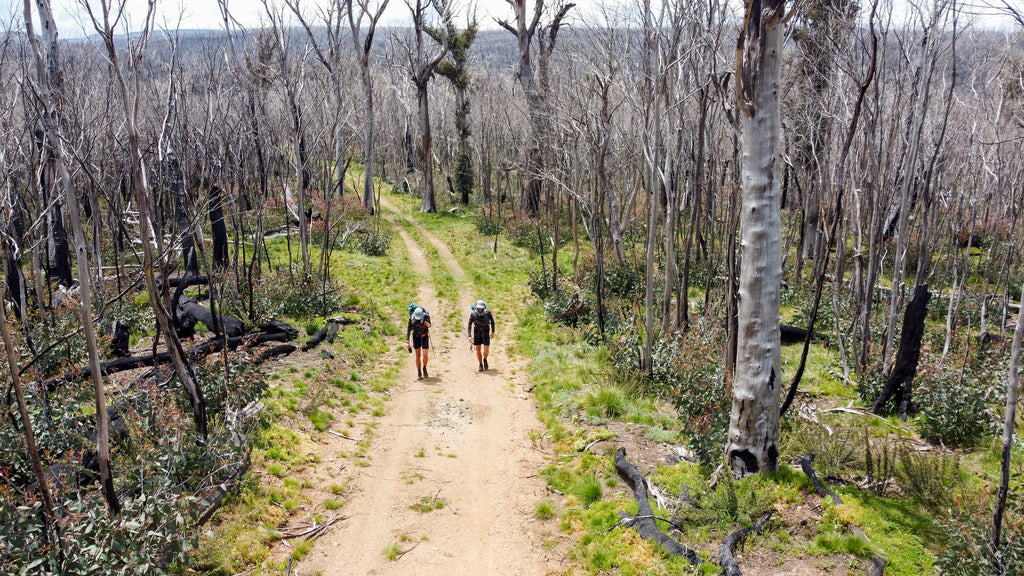 ‘We’d find ourselves bashing through dense scrub regrowth with no trail in sight, desperately trusting the lines of the compass,’ Giles explains. ‘In these sections, our legs, arms and bag slowly got torn to shreds.’
‘We’d find ourselves bashing through dense scrub regrowth with no trail in sight, desperately trusting the lines of the compass,’ Giles explains. ‘In these sections, our legs, arms and bag slowly got torn to shreds.’
‘We also quickly learned to use the Ultra-Sil Dry Sacks to keep our things dry. They were highly effective at protecting all our important pieces of kit.’
But once into the truly alpine regions, the pair reported almost idyllic running conditions. 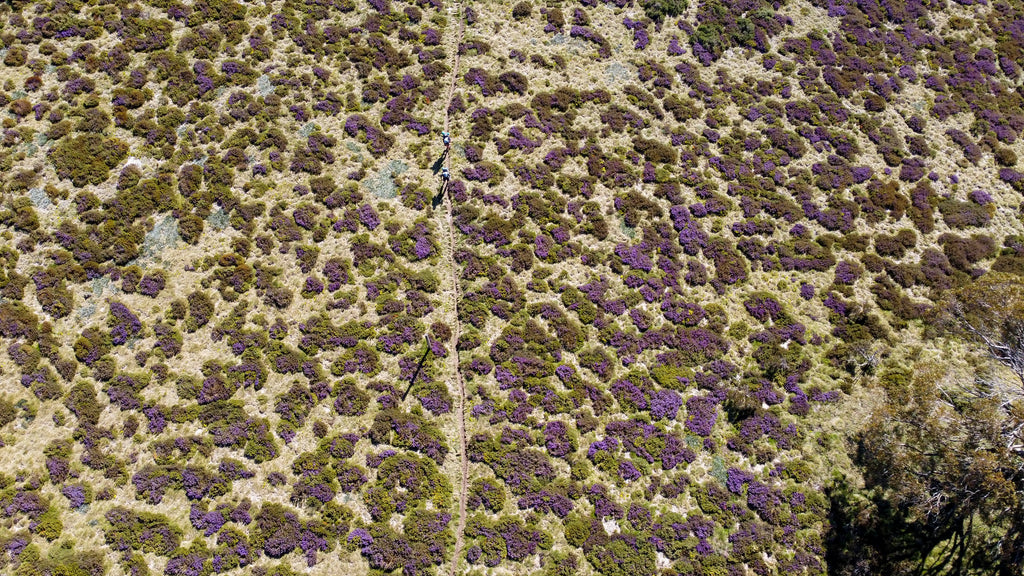 ‘Beautiful purple and yellow flowers of different varieties, ice-cold rivers, snow-capped mountains—we had a blast and it was a privilege to be able to traverse some of Australia’s most pristine wilderness,’ adds Matt.
‘Beautiful purple and yellow flowers of different varieties, ice-cold rivers, snow-capped mountains—we had a blast and it was a privilege to be able to traverse some of Australia’s most pristine wilderness,’ adds Matt.
‘In particular, the Main Range around Kosciuszko still had unexpectedly large snow deposits across the track, and walking in that area was something we’ll never forget.
‘Given how great the weather was, however, it was also very hot and the UV was well and truly after us. It became an iconic image for our crew to see us emerge on the horizon, faces and heads hidden in the cape of our full coverage sun caps.'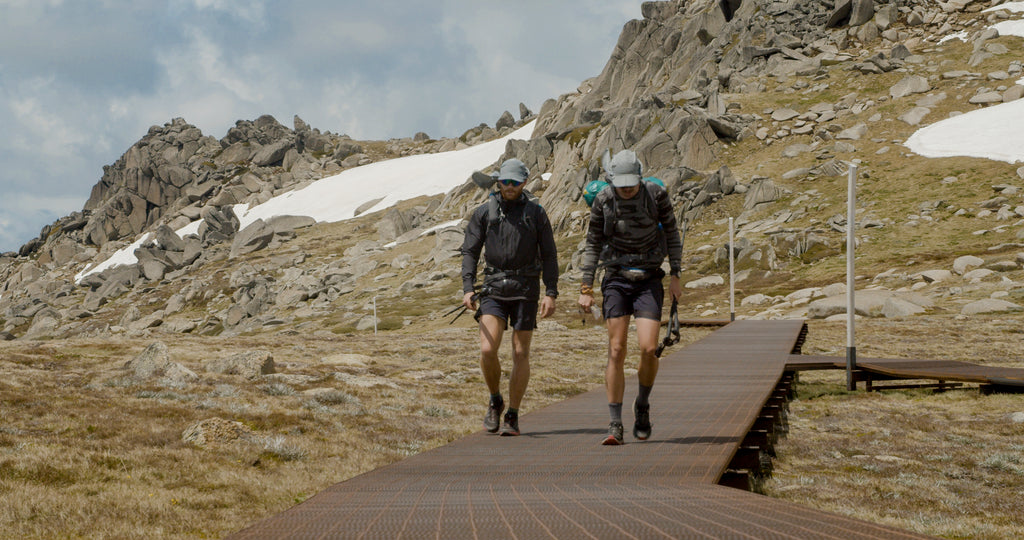 And so, in the early afternoon of 7 December, two exhausted but equally stoked adventurers ran down the final hill into Tharwa, 35 kilometres south of Canberra, where they officially finished the AAWT.
And so, in the early afternoon of 7 December, two exhausted but equally stoked adventurers ran down the final hill into Tharwa, 35 kilometres south of Canberra, where they officially finished the AAWT.
‘It was the adventure of a lifetime, and we are beyond grateful to Sea to Summit for all the support they provided throughout our journey, and to everyone else who sponsored us,’ adds Giles.
The feature film capturing the duo’s adventure will be premiered and released online later this year. In the meantime, the pair are continuing to fundraise at: https://chuffed.org/project/655fortakayna. 
